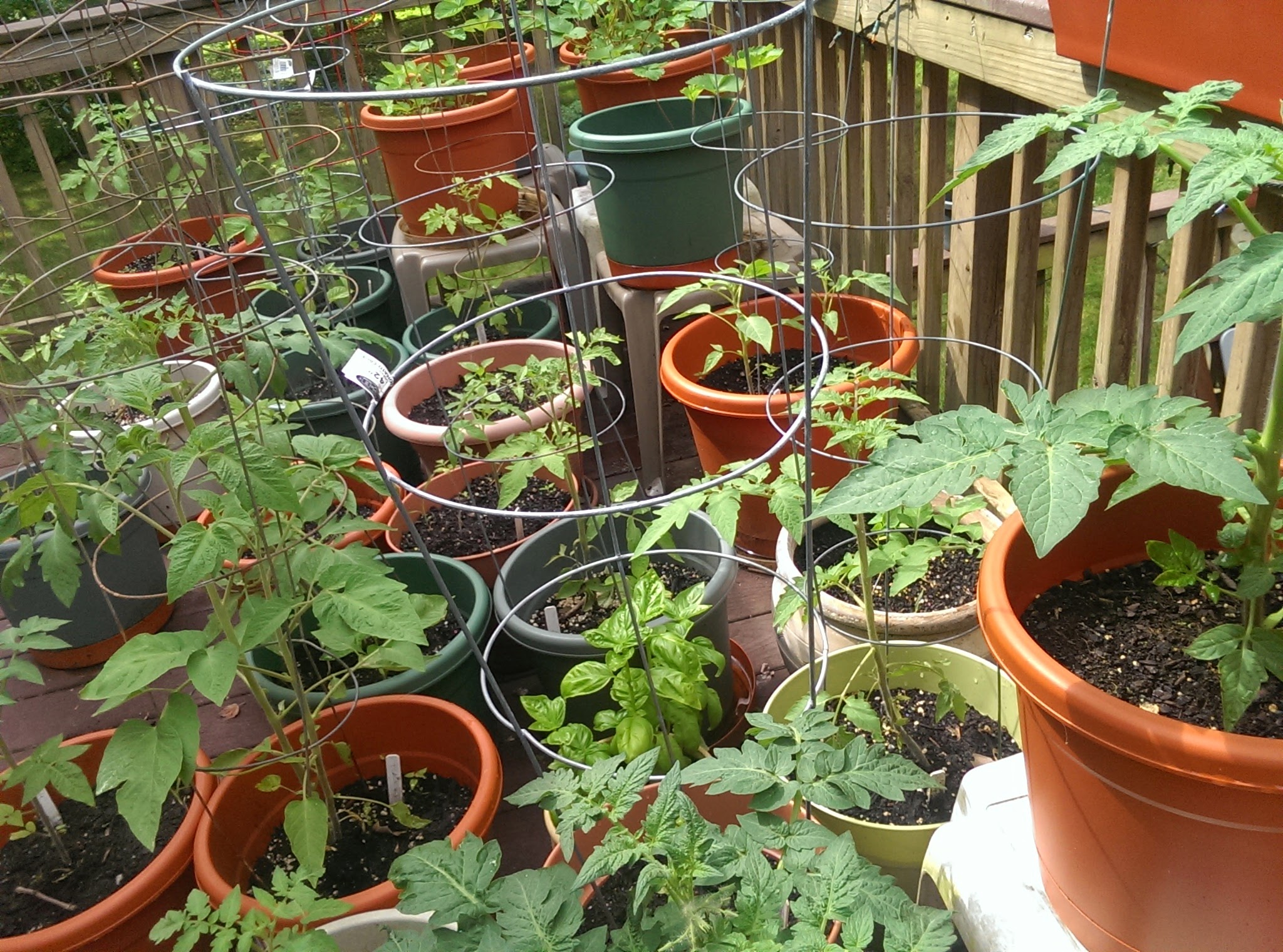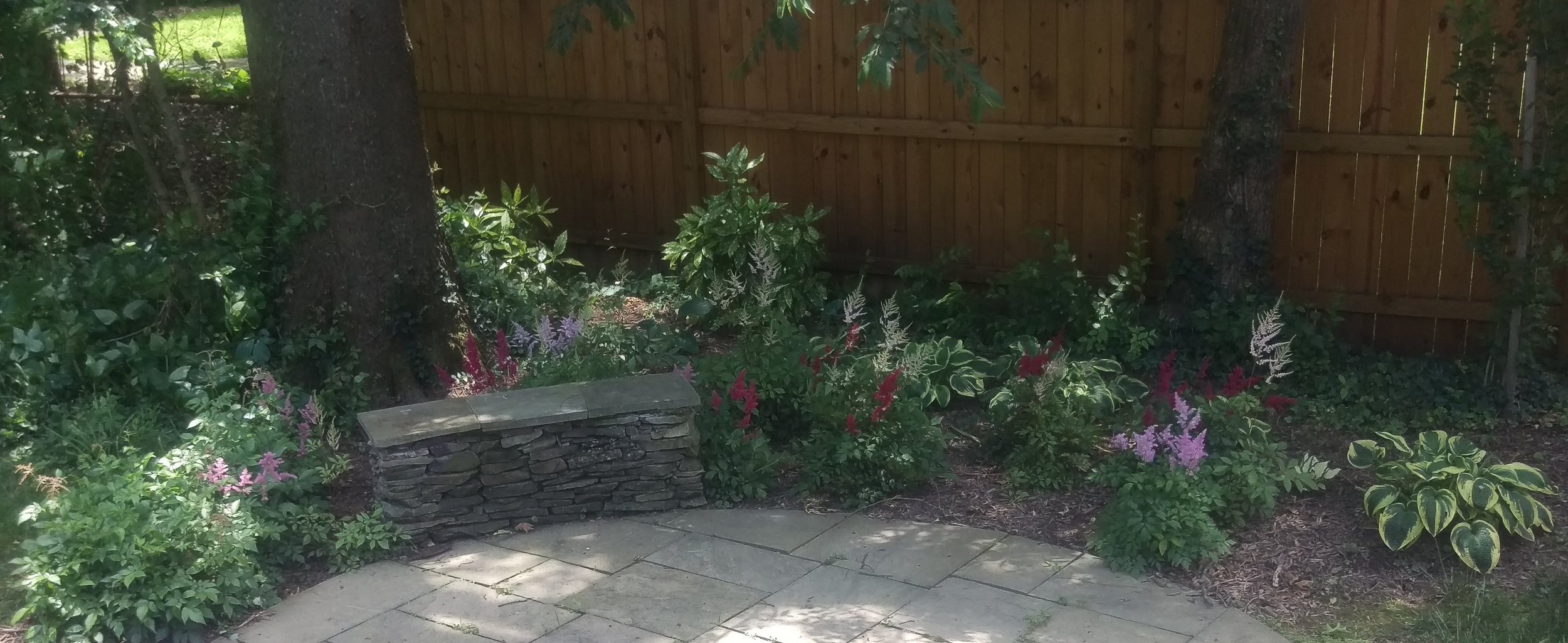The Rebel Gardener
I didn’t come easily to gardening. In fact, until I was about 55 years old (and that was almost 9 years ago) I paid gardening no mind at all. Zilch.
All I could see in gardening was way too much physical labor, almost all of it during hot Washington D.C. summers. Just a lot of sweat.
But somewhere in my body lurked the gardening gene just waiting to express itself. Geneticists have determined that for some genes, expression is indeed a function of age. And clearly that was the case for my gardening gene. In the spring of 2010, it began to stick out its tendril-covered head. I began modestly with a few tomato plants. But in just a couple of years, I was starting most of my plants as seedlings and slowly reclaiming the ivy-infested parts of my lawn. It’s an ongoing project.
I wish someone had told me sooner that gardening was a learning activity. Only by paying attention to how the plants behave under different conditions can you improve your gardening success rate. If you get into it, gardening is a deeply analytic activity.
And, of course or I wouldn’t be writing about it here, gardening offers a series of lessons for Rebels at Work. Being a Rebel at Work calls upon your analytic talents. And the more experience you have as a Rebel, the smarter you will be about advocating for change in organizations. But beyond that…
Failure is an essential component of gardening and of being a Rebel at Work. It’s only been in the past year that, as a gardener, I’ve become comfortable in ripping out plants that didn’t work out where I put them. I used to think such bad outcomes were an indictment of my underdeveloped gardening skills. Now I understand that only through experimentation can I learn what works and what doesn’t. Now Rebels at Work probably can’t afford too many bad ideas, but if you can master the art of tiny pivots—small experiments that can test some aspect of a proposal, you can learn to leverage “failure.” Before gardeners invest real money in a new flower bed, they should first test just a plant here or there to see what works in the soil and light.
The shady spots are never as shady as you think and the sunny spots are never as sunny. This partly explains why failure is an essential component of gardening. Just a few feet of separation can produce significant changes in light. I once planted two rose bushes within three feet of each other on the southeast exposure of my lawn. One prospered but the other faltered because of the dappled sunlight that reached it through overhanging trees. When I moved the laggard to what I had previously thought of as the too-shady side of my lawn, it doubled in size. Rebels can sometimes make facile assumptions about what parts of the organization would be most receptive to change. The team you think is ideal for your prototype because the leader is so friendly may actually harbor bamboo spikes underneath its surface. Go beyond superficial appearances.
Some things just take time. Plants have to settle into their new environments. Weather varies year to year. My transplanted rose bush only gave one weak flower the first year in its new location. But now it’s a reliable producer, if still not as robust as its sun-blessed twin. And so it is with organizational change. Expecting immediate results should be a rookie mistake, and yet we see it everywhere. I often think the most successful change efforts are the ones that people don’t quite realize are happening. Tiny pivots accumulate and without sturm und drang the organization finds itself in a better place. Rebels who want instant ego gratification normally aren’t willing to take the tortoise approach. And so their garden doesn’t grow.
Do the work. I’ve always had a problem with routine tasks. I’m just downright lazy about them. But gardening has knocked some sense into me on this front. Unless I do the work, nothing good happens. Failing to do the work is lethal to gardeners and Rebels. The Rebel who enjoys talking about her vision but doesn’t come up with a viable implementation plan is failing to do the work. If the Rebel isn’t into details, then she needs to ally herself with someone who is.
Someone has to sweat the details!




